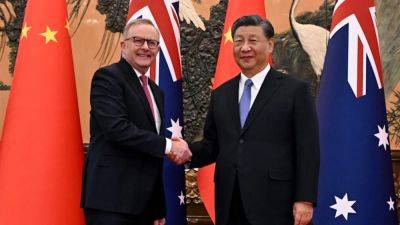Why China poses a growing threat to the U.S. auto industry
DETROIT — Chinese automakers pose a growing threat to their American counterparts — even without selling directly to consumers in the U.S. market.
Sales of China-made vehicles are rising at notable rates in Asia, Europe and other countries outside those continents. China recently reported exports of more than 5 million vehicles in 2023, topping Japan to become the top country for car exports in the world.
That volume from well-established, government-owned companies like SAIC and Dongfeng, as well as newer players like BYD, Nio and others, has catapulted China from the sixth ranking to the top seed since 2020. It comes amid declining U.S. vehicle exports as companies such as General Motors have cut international operations. U.S. auto exports in 2022, the most recent data available, were down 25% from their peak in 2016, according to the U.S. Bureau of Economic Analysis.
America — fourth globally in vehicle exports prior to 2020 — ranked sixth in the world last year, falling behind No. 5 Mexico, No. 4 South Korea and No. 3 Germany, according to global consulting firm AlixPartners.
"My No. 1 competitor is the Chinese carmakers," said Carlos Tavares, CEO of Chrysler parent Stellantis, during a virtual media roundtable Friday. "This is going to be a big fight. There is no other way for a global carmaker like Stellantis that is operating all over the world than to go head-on with the Chinese carmakers. There is no other way."
The threat extends beyond export volumes. Chinese automakers have set a new standard for vehicle production and pricing. They're releasing new models in record times, and many are producing EVs efficiently and profitably — something that has alluded global automakers including America's GM and Ford Motor.
Auto







